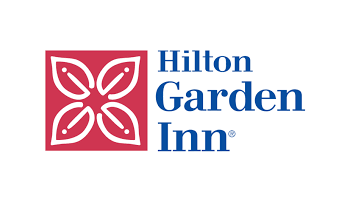Member Article: Parallels in Account Management and Romantic Relationships
“I Just Called to Say I Love You” – The Parallels between Best Practices in Account Management and Romantic Relationships
By Laura Caputo, J.D. & John Bacon MBA

Click the link for a Valentine’s Day mixtape on Spotify
Have you ever met with someone, whether it is a prospective sponsor or a networking connection, and thought, “Wow! They totally understand what I have to offer!”? As the Executive Director of the Romance Writers of America, I think about love and relationships slightly more often than the average ED. While chatting with my friend, John Bacon, Vice President of Enterprise Sales at the American Society of Association Executives (ASAE), we began pondering the parallels between best practices in account management and the keys to a successful long-term romantic relationship. In this article, we explore the intersections of these two seemingly distinct domains using four stages of relationships: Initial Connection, Foundation Building, Mutual Investment, and Stability Maintenance.
Stage 1: Initial Connection – Attraction and Discovery
Much like the initial spark in a romantic relationship, the first stage of account management involves building a connection with the client based on attraction and discovery. Account managers seek to understand and appreciate the unique qualities and needs of their clients. Similarly, consider what people do when they have a crush on someone—they “research” their crush on social media, they meet with their love interest to learn more about them, and they learn what they like so they can make them smile. Clear communication and active listening during this stage set the foundation for a strong and lasting connection.
 Laura Caputo (LC): During a debrief call with my team after an initial meeting with a prospective sponsor, we vented about how difficult the prospect seemed to be. He scrutinized every aspect of our sponsorship prospectus and asked for metrics that no other partner had ever requested. I took this as a challenge and met with the prospect multiple times, learning more about his role—he was new to the company—and his personal motivations. Not only did his company become a sponsor of our organization, but the following year, the sponsor named a price point, I responded with a list of benefits, and he asked me to send the contract with no questions asked.
Laura Caputo (LC): During a debrief call with my team after an initial meeting with a prospective sponsor, we vented about how difficult the prospect seemed to be. He scrutinized every aspect of our sponsorship prospectus and asked for metrics that no other partner had ever requested. I took this as a challenge and met with the prospect multiple times, learning more about his role—he was new to the company—and his personal motivations. Not only did his company become a sponsor of our organization, but the following year, the sponsor named a price point, I responded with a list of benefits, and he asked me to send the contract with no questions asked.
Stage 2: Foundation Building – Connection and Communication
The second stage involves building a deeper connection through effective communication. As the relationship develops, account managers focus on fostering clear and open lines of communication to understand and respond to evolving client needs. Similarly, couples strengthen the foundation of their relationship through shared experiences, enhanced communication, and a growing understanding of each other's perspectives.
 John Bacon (JB): When developing relationships, proactive and transparent communication leads to better connectivity when building the foundation of these relationships. My team created an engagement cadence with our partners to ensure that we had an opportunity to connect often. Needs will continue to change and evolve, so by staying on top of these changes proactively, it shows how important our partners are and that we are taking an interest in their business. It’s the ABC of relationships: “Always Be Curious.” The agenda for these meetings are about:
John Bacon (JB): When developing relationships, proactive and transparent communication leads to better connectivity when building the foundation of these relationships. My team created an engagement cadence with our partners to ensure that we had an opportunity to connect often. Needs will continue to change and evolve, so by staying on top of these changes proactively, it shows how important our partners are and that we are taking an interest in their business. It’s the ABC of relationships: “Always Be Curious.” The agenda for these meetings are about:
- Changes in business needs- What's new with you and have your needs/initiatives changed? It also gives our team an opportunity to update them on any changes going on in our organization so they can get to know us as well.
- Investment Accountability- Our partners spend a lot of money with us, and I want to ensure that they are using everything related to their partnership. Touching base regularly allows us to keep each other accountable for the investment made on both sides.
- How are we doing? - The needs analysis and investment accountability conversation is important but making yourself vulnerable enough to ask “how are we doing?” is key to a successful relationship. You always hope you know the answer to this question, but asking does not leave your relationship to chance and allows you to implement steps to course correct if needed.
Stage 3: Mutual Investment – Commitment and Partnership
The ‘Mutual Investment’ stage signifies a deeper level of commitment and partnership. Account managers, much like committed partners, prioritize the success and well-being of their clients. This stage involves aligning goals, addressing challenges together, and ensuring a shared vision for the future. The dedication to a long-term connection becomes evident, fostering a sense of stability and trust.
LC: I took over account management for an association’s long-time partner last year. The partner had been supporting the association for many years because they felt obligated based on membership demographics, not because of their belief in the partnership. The previous account manager would simply send over the association’s rate sheet, and the partner would select what was offered based on their allocated marketing budget that year. When I began serving the sponsor, my focus was on the conversation: I wanted to know the sponsor’s priorities for that year. I asked if there were any new programs or initiatives in the pipeline, and how we could do better at making sure that our association was delivering the value to the partner as promised. The partner is a large health insurance company and Mental Health Awareness Month (May) was coming up, so I made a point to ask if they had any content to share with our membership regarding this important topic. The partner expressed their appreciation for my forethought in understanding their industry and helping them with ideas to provide relevant content. Within the first two months, the partner shared that they were much happier about their decision to continue supporting our association, and that they felt that we were more invested in the partnership because of this new approach.
Stage 4: Stability Maintenance – Sustaining and Nurturing
The final stage revolves around stability, sustainability, and nurturing. Account managers strive to provide ongoing support, deliver consistent value, and exceed expectations to maintain a stable and fruitful partnership. Similarly, couples in a stable romantic relationship invest in continuous growth, understanding, and the nurturing of their connection to ensure its longevity.
JB: For me, the goal of all relationships, personally and professionally, is continued growth. This is such an awesome stage because I know my partners’ business so well that I can make sound recommendations on growth opportunities for them. I can mitigate issues faster because I know what they are looking for, which allows me the opportunity to go above and beyond because I know what success looks like for them. Stage 4 is where you really must be intentional about being comfortable, but not complacent.
We had a client that we had been working with for over 10 years. We needed to make a change to a magazine cover but could not get in contact with our partner to make the change and it needed to be done quickly. Because of active listening over the years and the trust that had been built, we were able to make an executive decision and move forward because we knew what they were looking for. We reached out to let them know of the change we made, and it ended up being one of the most popular covers of a magazine that we had ever done. Even without giving their input, they felt good to know that they truly had a partner that knew them and understood their business.
Conclusion
Like advice from your favorite relationship guru, the attraction and discovery work of the Initial Connection, the importance of clear communication during the Foundation Building phase, and a genuine commitment to reciprocal growth during the Mutual Investment phase are keys to success in both romantic relationships and account management. By focusing on fostering a meaningful connection, adapting to change, and consistently nurturing the relationship, account managers and individuals can ensure a long and happy partnership between their organizations and business partners as well as with their significant others.
Laura R. Caputo, J.D. is an Association Executive at AMC Source where she serves as Executive Director of the Romance Writers of America and leads sponsorship and business development for several AMC clients. In her free time, Laura loves training for races, trying to get her second grader son to stop negotiating everything, and being the official vacation planner for her family. Laura earned her Juris Doctorate from Indiana University-Bloomington, Maurer School of Law, and BA in Advertising/Public Relations from the University of Central Florida.
John Bacon, MBA is Vice President of Enterprise Sales at ASAE with 14+ years of experience in sales, enterprise partnerships, account management, and business development. When John isn’t leading his sales team, he is tending his garden, being a dog dad, or using his Tonal machine, which he swears by. John earned his MBA from Saint Leo University.

